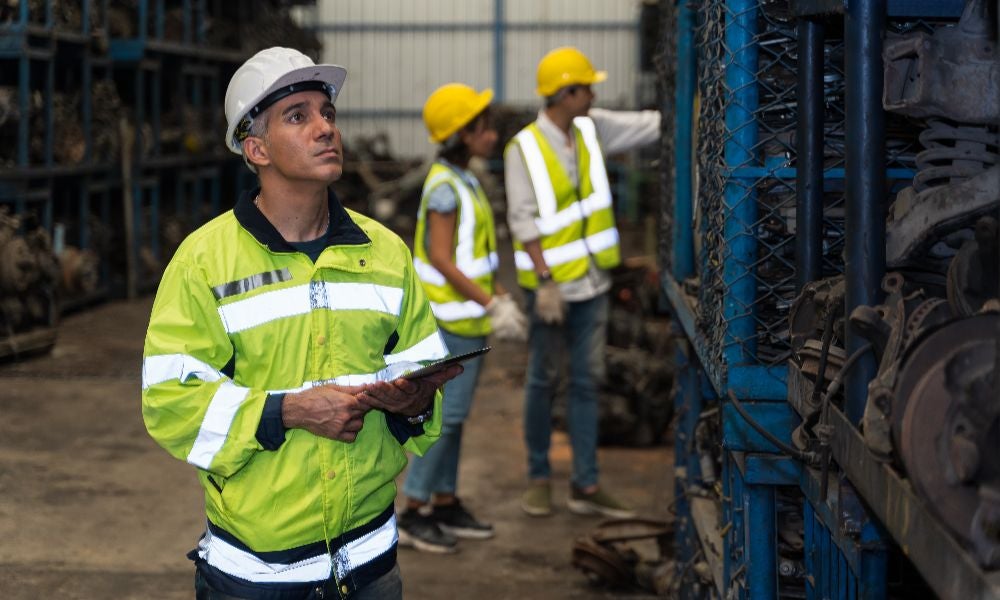Keys to winning government contracts in emerging markets
Foreign multinationals seeking government contracts in emerging markets must embed themselves into local professional networks and align with their policy goals
When a European healthcare technology company attempted to enter the Southeast Asian market by selling medical equipment to Indonesian state-owned hospitals, government officials refused to meet. Invitations to events were accepted, then cancelled at the last moment via WhatsApp. The pattern repeated itself. This scenario played out, not because the products lacked merit, but because the company faced what researchers call "barricaded buyers" – government purchasers who are difficult to access and communicate with during the buying process.
This challenge confronts multinational enterprises worldwide as they seek to tap into government procurement markets worth an estimated US$11 trillion globally. In Indonesia alone, the government represented between 20-45% of public expenditures, making it one of the most significant customers in the economy. Yet for foreign companies, particularly in sectors like healthcare where governments are major purchasers, the path to winning contracts remained blocked by institutional barriers, cultural differences, and concerns about foreign influence.
New research examines how foreign-owned multinationals construct business relationships with government buyers in emerging markets that require multinational products, but where direct access to those buyers remains restricted. Published in the Journal of Business Research, the study was co-authored by Dr Christiaan Röell, a lecturer in the School of Management and Governance at UNSW Business School, Dr Wilson Ng, Professor of Entrepreneurship at IDRAC Business School, and Dr Felix Arndt, Professor and the Eyton Director of the Conrad School of Entrepreneurship and Business.

“The research grew out of years of fieldwork in Indonesia, where managers of foreign multinationals described the immense challenges of selling their products to state-owned hospitals,” explained UNSW Business School’s Dr Röell, lead author of the study. “They believed their products were clearly superior, yet struggled to even meet, let alone persuade, the government decision-makers to purchase their products. That conundrum – why access was blocked, and how firms eventually found innovative ways to break through – inspired this study.”
The role of trusted local voices
Using a longitudinal case study approach, the researchers conducted 32 in-depth interviews between 2018 and 2023 in Jakarta, Indonesia. The study included interviews with company directors, government officials, competitors, health experts, and managers of industry associations, supplemented by company documents, news articles, and archival data.
The research paper, Cultivating relationships between foreign multinationals and barricaded government buyers in emerging markets, revealed that foreign companies overcame barriers by working with "key opinion leaders". These locally respected professionals – including medical doctors, researchers, and members of health associations – served as intermediaries between foreign suppliers and government decision-makers. As one company manager explained in the research: "We need key opinion leaders from the association, we need medical experts, and together with their support, we approach the Ministry of Health. They will help us influence the ministry based on their needs."
Learn more: How multinationals can navigate corruption when governments fall
Key opinion leaders operated within "epistemic communities" – networks of professionals from organisations like NGOs and medical associations who generated policy-relevant knowledge on technical issues. Government procurement decision-makers relied on these experts to reduce uncertainties when making purchasing decisions about medical equipment. The research found that buyers sought opinions and recommendations from medical experts who presented at conferences and advised on healthcare standards.
“Our research shows that winning tenders in emerging markets isn’t only about price or product quality; it hinges on partnering with trusted local experts – medical professionals – whose endorsement carries weight with government buyers,” said Dr Röell.
Building credibility through shared goals
The case study focused on how one foreign medical equipment supplier (referred to as HealthCo) established credibility by demonstrating commitment to improving Indonesian public healthcare. The firm organised workshops and events on locally relevant health issues, presenting how its technology could advance public health goals. HealthCo also invested in corporate social responsibility initiatives, including women and child health projects and cancer awareness programmes. As the Head of Marketing noted: "We don't make any money with these initiatives, but it's really important for our credibility. These are the investments that pay off in the long-term."

The approach differed from traditional marketing because advertising remained highly regulated in government procurement. Instead, HealthCo positioned itself as a partner in solving societal problems rather than simply as a vendor. This positioning helped the company overcome what researchers described as the “liability of outsidership” – the disadvantage of being located outside relevant networks in a particular market.
Creating demand through local innovation
HealthCo did not merely sell foreign-made products. The company developed locally tailored healthcare solutions, including a smartphone-based digital health service to identify high-risk pregnancies in rural areas where maternal mortality rates remained high. The company collaborated with local governments and NGOs to address Indonesia's doctor shortage in rural regions through telehealth services. "I think these kinds of activities can make a big difference when it comes to our relationship with the government,” one manager explained. “They really appreciate what we are doing."
These innovations served dual purposes: they addressed genuine healthcare gaps while demonstrating the company's expertise and commitment to Indonesia. The success of such initiatives, amplified by key opinion leaders, attracted attention from other provincial governments seeking similar partnerships.
Influencing policy and purchase decisions
Perhaps most notably, the research revealed how foreign companies worked with key opinion leaders to shape healthcare policy itself. HealthCo needed the Indonesian government to standardise certain medical checks as routine procedures in state-owned hospitals before it could sell related equipment. This required convincing multiple government departments that international healthcare standards should be adopted. The process took years of evidence-based presentations, research collaboration with medical experts, and persistent engagement with policymakers.
Subscribe to BusinessThink for the latest research, analysis and insights from UNSW Business School
The company also maintained strict corporate governance standards, refusing to engage in corrupt practices, despite acknowledging that this stance would cost sales. However, this approach attracted reform-minded government officials who praised the company's transparency and built long-term trust-based relationships, according to Dr Röell: “You may lose a few contracts by staying compliant, but you gain the right allies.”
Practical implications for business leaders
The research provided valuable lessons for companies seeking to secure government contracts in emerging markets. First, direct selling to government buyers is a challenging endeavour. Companies need to cultivate relationships with locally respected experts who can independently verify product quality and advocate for needed policy changes.
Second, long-term commitment matters more than short-term sales tactics. Investing in local healthcare innovations, even without immediate revenue, builds credibility that eventually opens doors to procurement opportunities.
Third, companies face choices about governance standards. While competitors might offer gifts or payments to secure meetings, firms adhering to strict compliance standards attract different types of government officials – those focused on social value rather than personal gain.

Ultimately, the research reveals that relationship-building in business-to-government contexts is facilitated through multiple networks simultaneously, necessitating managers to comprehend and navigate intricate political, social, and professional connections.
The findings suggest that in emerging markets, success in government procurement depends less on product superiority alone and more on the ability to embed within local professional communities, align commercial objectives with public health goals, and leverage the credibility of trusted local voices. As Dr Röell explained: “If there’s one takeaway from our study, it’s that credibility comes before contracts,” he said. “Foreign firms need to show they are committed partners in solving societal problems, not just looking to make a quick sale. That mindset shift is what ultimately wins trust – and tenders.”
FAQ: Navigating government procurement in emerging markets
What are “barricaded government buyers” in emerging markets? The term refers to government procurement decision-makers in emerging markets who are difficult for foreign firms to access due to institutional barriers, cultural differences and restricted communication channels.
Why must foreign multinationals work with local key opinion leaders when targeting government contracts? Local experts (medical doctors, association members, policy advisers) serve as intermediaries and carry credibility with government buyers, helping reduce uncertainty and influence procurement decisions in emerging markets.
Is product quality alone sufficient for winning government tenders in emerging markets? No. The research shows foreign firms must also build long-term relationships, demonstrate social value, align with public health goals and navigate institutional networks to succeed.
What long-term investments should foreign firms make to enhance credibility in government procurement? Firms should invest in locally relevant initiatives (e.g., workshops, CSR programmes, digital health solutions), align with public policy objectives, and maintain strict governance standards to build trust with government actors.
What practical steps can business leaders take when entering government procurement markets in emerging economies? Identify and engage respected local professional networks, design products and services tailored to local health priorities, adopt compliant practices, and view procurement as a long-term relationship rather than an immediate sale.
